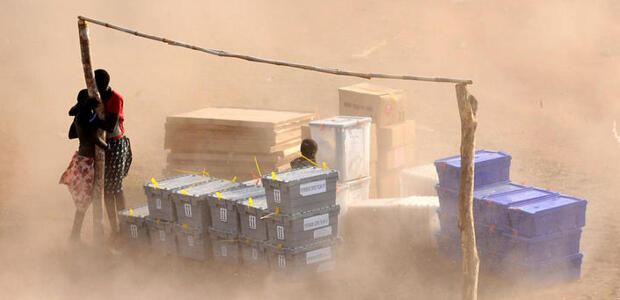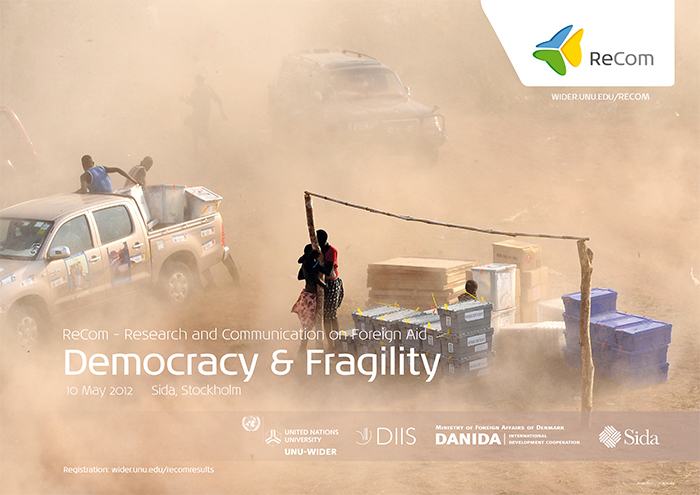
Project
 Foreign aid and democracy in Africa
Foreign aid and democracy in Africa
Theme: 2010-11
ReCom - Research and Communication on Foreign Aid programme was launched in early 2011 by the Danish International Development Agency (Danida) and the Swedish International Development Agency (Sida). Key partners of this initiative include the United Nations University-World Institute for Development Economics Research (UNU-WIDER) and the Danish Institute for International Studies (DIIS). The aim of the programme is to investigate and share knowledge on what works in development assistance, and what could work—including the potential to scale-up small but successful interventions into larger aid programmes, and transfer aid programmes across countries. Through the creation and communication of this knowledge, ReCom aims to improve aid practice and policy, consequently increasing the benefits of aid for recipient countries.
ReCom focuses on five thematic areas: Growth and Employment, Governance, Gender Equality, Environment and Climate Change, and the Social Sectors. The May 10th results meeting focuses explicitly on Governance with specific attention to Democracy and Fragility. Based on both research and practical experience, the presenters will consider how the donor community can enhance the effectiveness of its interventions to promote democracy and enhance governance, including in fragile states.
The following key questions will be addressed: In what ways do the objectives of development aid and democracy assistance complement or contradict each other? How does the influence of development aid on democratic transitions differ from its impact on democratic consolidation? To what extent can donors influence democratic outcomes in fragile states where governments lack complete sovereignty over their territory and population? What are the main lessons from, and opportunities for, strengthening legislatures in developing countries? How should the donor community best conceptualize and measure progress towards improving 'human rights'? How effective has the development community’s emphasis on anti-corruption been and what lessons are emerging from new anti-corruption approaches by donors, including a focus on transparency and mainstreaming?
